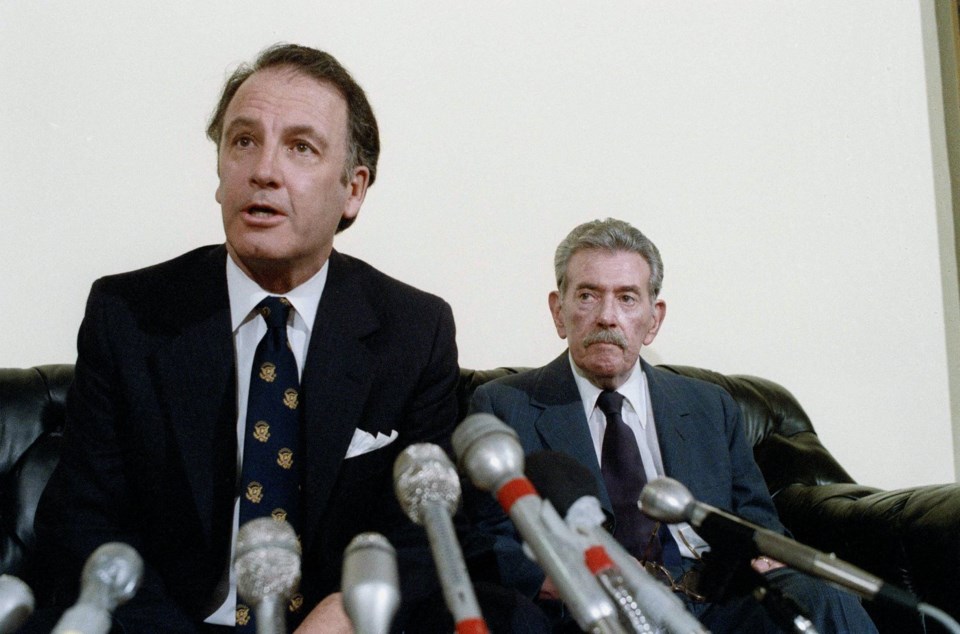HELENA, Mont. (AP) — Pat Williams, a New Deal-style Democrat who won Montana's great liberal-conservative showdown of 1992 to become the state's lone voice in the U.S. House of Representatives, died Wednesday. He was 87.
Williams died in Missoula of natural causes, family spokesperson Matt McKenna said Thursday.
John Patrick Williams represented the western half Montana from 1979 to 1997. When the 1990 census eliminated one of two House seats the state held since 1912, Williams captured the new statewide district in a bruising race against the longtime eastern-district representative, Republican Ron Marlenee.
The 51% majority was the slimmest of Williams’ congressional career — and the first election defeat in Marlenee’s 16-year career.
The matchup was billed as a classic liberal-conservative confrontation and a microcosm of political battles being waged throughout the West over control of the land and its resources.
It was a bitter, hard-fought contest — each man spent more than $1 million — and Williams said quickly after his victory that he would work to bring the state together.
Williams first tried for the congressional seat in 1974, but he lost to fellow Democrat Max Baucus. Williams was elected to the post in 1978 when Baucus moved to the U.S. Senate. By the time of the face-off with Marlenee, Williams was a deputy whip in the House.
He was an unabashed liberal, a staunch advocate for organized labor and a believer in the potential of government to help people.
That won him the enmity of conservative groups such as Pat Robertson’s Christian Coalition.
Williams defended the National Endowment for the Arts against pornography charges and opposed proposed constitutional amendments to outlaw abortion and flag desecration and to require a balanced budget. He opposed U.S. military intervention in the 1991 Gulf War and wanted post-Cold War defense savings to be used for public works projects.
Williams tried to take a middle road in one of Montana’s most divisive issues, wilderness, and environmental groups generally gave him strong support. He said the argument of jobs versus the environment presented a false choice because the state could not have one without the other.
“A clean environment ... has been and will be an absolute cash register for this state,” he said in 1992.
His family said in a statement that Williams spent his life protecting wild lands and defending the working poor, arts, Native people and children with disabilities.
“He believed government could be a force for good, and that culture, wilderness, and education were not luxuries — but rights,” the statement said.
After he left the House in 1997, Williams started teaching at the University of Montana, including courses in environmental studies, history and political science.
Republican Gov. Greg Gianforte recalled Williams as a “dedicated public servant.”
“As Montana's longest-serving congressman, Pat championed Montana's interests, working to find common ground for nearly 20 years in Washington,” Gianforte said.
Williams’ wife, Carol, was the first woman to become minority leader in the state Senate. They have a son, John G., and two daughters, Erin and Whitney.
Williams received a bachelor’s degree from the University of Denver and did graduate work at Montana State University.
Born Oct. 30, 1937, in Helena, Williams grew up in the mining city of Butte, and its traditionally Democratic unionized workforce was a major element of his power base. He taught in the Butte public schools for seven years, and the combination earned him a spot on the House Education and Labor Committee.
Williams served in the Montana House in the 1967 and 1969 sessions. In 1968 he headed the Montana presidential campaign for Hubert Humphrey. He did the same in 1976 for Jimmy Carter.
Williams got a firsthand look at Washington, D.C., from 1969 to 1971 when he worked as executive assistant to Montana Democratic U.S. Rep. John Melcher.
Williams returned to Montana in 1971 and spent seven years as state head of the federally funded Montana Family Education Program, a career program for disadvantaged people.
Williams will lie in state at the Montana State Capitol in Helena on Wednesday and Thursday.
The Associated Press




